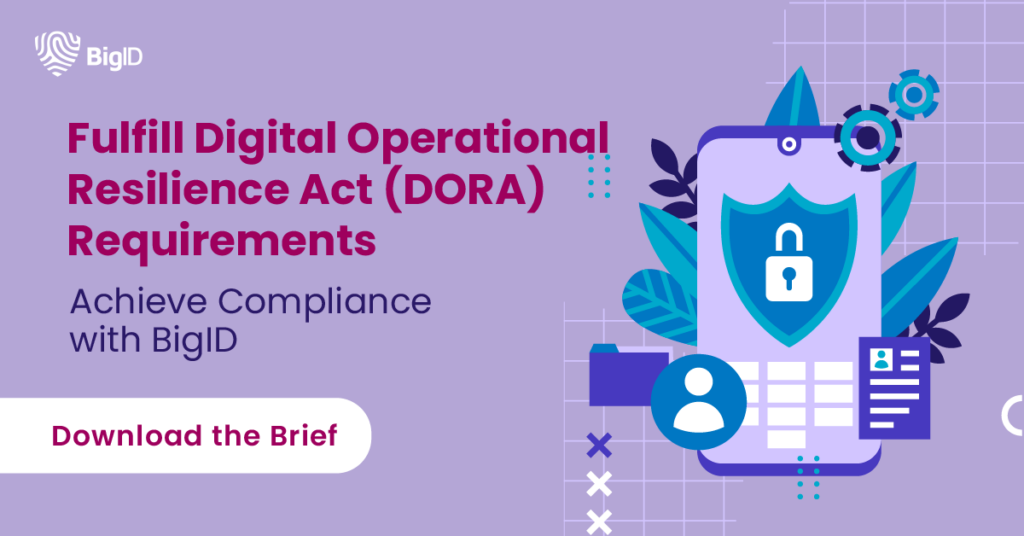Understanding the Digital Operational Resilience Act (DORA): Preparing for the Future of Compliance
The Digital Operational Resilience Act (DORA) is a groundbreaking regulation set to reshape the way organizations manage their digital infrastructures. Enforced by the European Union (EU), DORA aims to ensure that financial institutions can withstand, respond to, and recover from all types of Information and Communication Technology (ICT) disruptions and threats. The act is part of the broader EU strategy to enhance the stability and resilience of the financial sector in an increasingly digitized world.
What is DORA and Why It Matters
The Digital Operational Resilience Act (DORA) is a regulatory framework that mandates financial entities to improve their ICT risk management, governance, incident reporting, and testing procedures. Its primary goal is to ensure that all participants in the financial system, including third-party ICT service providers, are operationally resilient against digital disruptions.
The Importance of DORA in the Modern Digital Landscape
With the increasing dependency on digital systems and services, financial institutions face heightened risks from cyberattacks, system failures, and other ICT disruptions. DORA’s introduction reflects the growing need for a robust regulatory approach that ensures financial stability and protects consumer data in an era of pervasive digital threats.

Industries Most Impacted by DORA
Financial Institutions
DORA directly targets the financial sector, including banks, insurance companies, investment firms, and payment service providers. These entities are at the heart of economic activity and thus must maintain operational continuity and protect against ICT risks.
ICT Third-Party Service Providers
DORA extends its reach to ICT third-party service providers, including cloud computing services, data centers, and software vendors. These providers are critical to the operations of financial entities and, under DORA, they are also required to comply with stringent regulatory standards.
Regulated Non-Financial Entities
While the primary focus is on financial institutions, DORA also affects certain non-financial entities that play a significant role in the financial sector, such as financial market infrastructure providers and information-sharing platforms.

DORA Requirements and Compliance Strategies
1. ICT Risk Management Framework
Organizations must establish a comprehensive ICT risk management framework that includes risk identification, protection measures, and incident response procedures. This framework should be embedded into the overall risk management processes and regularly updated to address evolving threats.
2. Governance and Oversight
DORA requires organizations to have a robust governance structure in place. This includes clear roles and responsibilities for ICT risk management, regular board oversight, and integration of ICT risks into the organization’s overall risk management strategy.
3. Incident Reporting and Response
Financial entities must report significant ICT-related incidents to relevant authorities within tight timeframes. They are also required to have a well-defined incident response plan to manage and mitigate the impact of such disruptions.
4. Testing and Operational Resilience
Organizations must conduct regular testing of their ICT systems to ensure operational resilience. This includes scenario-based testing, penetration testing, and assessments of third-party service providers’ resilience.
5. Oversight of Third-Party Service Providers
Under DORA, financial institutions must ensure that their third-party ICT service providers adhere to the same rigorous standards. This includes contractual arrangements that enforce compliance, regular audits, and risk assessments.
Compliance Challenges and Practical Solutions
Challenge 1: Integrating DORA into Existing Frameworks
Solution: To effectively integrate DORA requirements, organizations should align them with existing regulatory and compliance frameworks such as the General Data Protection Regulation (GDPR) and the Network and Information Security (NIS) Directive. This approach reduces redundancy and ensures a cohesive compliance strategy.
Challenge 2: Managing Third-Party Risks
Solution: Organizations should implement a robust third-party risk management program that includes thorough due diligence, continuous monitoring, and clear contractual obligations. Engaging with third-party providers to ensure their compliance readiness is crucial.
Challenge 3: Incident Reporting and Data Management
Solution: Automate incident detection and reporting processes to ensure timely and accurate submission to authorities. Leveraging advanced analytics can also help in identifying trends and potential risks before they escalate.
Ensuring DORA Compliance: Who Are the Stakeholders?
Internal Stakeholders
- Chief Information Security Officer (CISO): Responsible for overseeing ICT risk management and ensuring alignment with DORA requirements.
- Risk Management Teams: Tasked with integrating ICT risk management into the organization’s overall risk framework.
- Compliance Officers: Ensure that the organization meets all regulatory requirements, including incident reporting and governance standards.
- IT and Security Teams: Handle the technical aspects of resilience, including system testing, incident response, and third-party management.
External Stakeholders
- Regulatory Authorities: Monitor compliance and impose penalties for non-compliance. They also provide guidance on best practices and updates to regulatory requirements.
- Third-Party Service Providers: Play a critical role in the operational resilience of financial institutions. They must align their operations with DORA’s standards.
- Industry Associations: Offer support and resources to help organizations navigate DORA compliance.
Best Practices for Achieving DORA Compliance
Continuous Monitoring and Improvement
Achieving compliance with DORA is not a one-time task but an ongoing process. Organizations should implement continuous monitoring of their ICT systems and compliance status. Regular audits and updates to the risk management framework will help maintain resilience in the face of new threats.
Collaboration and Information Sharing
Engaging in industry-wide collaboration and sharing information on emerging threats and best practices can enhance resilience across the sector. Organizations should participate in industry groups and work closely with regulators to stay ahead of potential risks.
Leveraging Technology for Compliance
Advanced technologies such as artificial intelligence (AI) and machine learning (ML) can be powerful tools in achieving DORA compliance. These technologies can automate risk assessments, detect anomalies in real-time, and streamline incident reporting processes.
Building a Culture of Resilience
Organizations should foster a culture where operational resilience is a priority across all levels. This includes regular training, awareness programs, and a clear understanding of the importance of compliance among all employees.
BigID’s Approach to the Digital Operational Resilience Act (DORA)
The Digital Operational Resilience Act (DORA) was established to fortify the financial system in the EU with safeguards to mitigate cyberattacks and data risks. DORA requires financial service firms to develop risk management practices, report incidents, test resilience, and manage third-party risk. BigID is the industry leading platform for data privacy, security, compliance, and AI data management that gives organizations greater visibility into their enterprise data.
With BigID organizations can:
- Automate Data Governance: DORA requires financial institutions to develop an internal governance and control framework to ensure effective management of ICT risk to achieve a high level of digital operational resilience. BigID’s solutions can map and analyze data flows to gain complete data visibility. With BigID, organizations can build a data inventory to understand how data is processed, transmitted, and stored to mitigate risk and comply with DORA’s requirements.
- Improve ICT and Security Risk Management: DORA emphasizes the importance of effective Information and Communication Technology (ICT) and security risk management. BigID can aid in the risk management aspect of DORA, By identifying and classifying sensitive data ensuring that financial institutions understand where their vulnerabilities exist, assess data risk, protect against unauthorized access, and quickly provide reporting to internal and external stakeholders.
- Simplify Data Privacy & Regulatory Compliance: DORA imposes data privacy and regulatory obligations on financial institutions regarding their operational resilience in digital environments. BigID can help financial institutions comply with DORA’s stringent data protection and privacy requirements. BigID’s comprehensive privacy and security solution is uniquely designed to be easily deployed by the CISO, CPO, and CDO to take a unified approach to data visibility, risk reduction, cybersecurity, and privacy compliance.
- Streamline Incident Response and Reporting: BigID helps organizations minimize the impact of data breaches with proactive measures to detect and respond to cybersecurity incidents. With BigID, you can easily comply with DORA requirements with effective breach response and incident reporting.
To see how BigID can help kickstart your organization’s DORA compliance — get a 1:1 demo with our security experts today.


